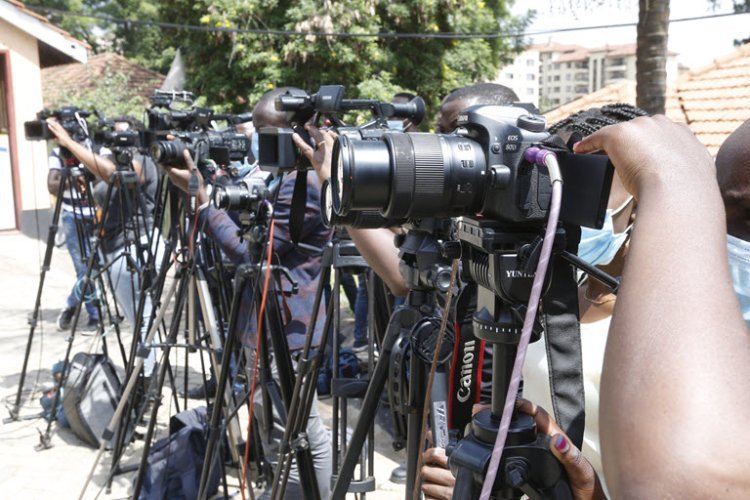Will Proposed Bill Block Journalists From Joining PR? Experts Explain
According to a despatch from Cabinet, the bill which was first drafted in 2019 will be transmitted to Parliament for debate.

The Cabinet on Tuesday, August 8 approved the Institute of Public Relations and Communication Management (IPRAC) Bill, answering calls to have the PR industry in Kenya regulated.
According to a despatch from Cabinet, the bill which was first drafted in 2019 will be transmitted to Parliament for debate.
"To strengthen the framework for governance as envisaged under Article 10 of the Constitution on National Values and Principles of Governance, Cabinet approved the transmittal to Parliament of the following Bills: The Public Relations and Communications Management Bill, 2023 and the Statute Law (Miscellaneous Amendments) Bill, 2023," read the despatch in part.
The Public Relations Society of Kenya (PRSK) in a statement hailed the approval as a significant milestone for the PR profession, marking a major step towards professionalizing the PR and communications industry in Kenya, which has of late seen new entries from the Kenyan media space.

President William Ruto chairs a Cabinet meeting at Sagana State Lodge on August 8, 2023. /PCS
"Once enacted into law, IPRAC Bill will provide a framework for regulating and standardizing the practice of public relations, thereby ensuring ethical conduct and maintaining professional standards, which will enhance the credibility and reputation of our industry. IPRAC Bill will position public relations practitioners as trusted advisors and strategic partners in driving organizational success.
"As a society, we are committed to actively engaging in the legislative process and advocating for the inclusion of provisions that uphold the highest standards of professionalism and ethics. We will work closely with the relevant stakeholders to provide input and support the development of robust regulations and guidelines that will govern our profession," PRSK stated in part.
Though the bill will seek to lock out unscrupulous individuals from joining the world of PR, there could be a slight worry that journalists willing to venture into that field will be met with tough conditions, among them getting accreditation, which could likely scare a number of them away.
Speaking to Viral Tea, a number of PR experts, however, argued that the bill in its early stages, if passed, may not force employers to demand that those joining their PR divisions have accreditation as a prerequisite.
"They may in future force those they intend to hire to have accreditation. That's how many may be locked out since they will have to undergo tests," one expert told Viral Tea, adding that there may be charges for those seeking accreditation for PR.
For a journalist for instance already paying for accreditation through the Media Council of Kenya (MCK), they risk footing another amount to be accredited to PRSK, and with the current cost of living deterring Kenyans from unnecessary spending, media professionals, including practitioners, may shy away from joining PR.
Another told Viral Tea that the standardization is important to avoid the increasing trend of flooding comedians and influencers to act as PR practitioners.
Kenya has a vibrant public relations and communication management industry but lacks a legal framework to regulate the manner in which professionals conduct their practice. This, together with the lack of a coherent understanding of the PR and communication management practice, has subjected the industry to manipulation, resulting in negative perceptions that have injured the profession.
Does PR Go Hand-in-Hand With Journalism?
Public relations and journalism go hand-in-hand. PR professionals rely on journalists to get their messages out to the public, and journalists lean on PR pros for story ideas and interview facilitation.
In both journalism and PR, professionals are constantly communicating with the public. They tell stories and interact with their audiences, which is what keeps the organizations running.
In order for professionals in the journalism and PR industries to be successful, it is essential to build credibility and trust with the audience.

Journalists covering a past press conference. /FILE
Journalists build trust by reporting and publishing fair and accurate content so that they are recognized as a credible organization. In addition to credibility, PR professionals build trust to inform and persuade target audiences to support an organization or product.
Differences
At a news organization, usually, employees have one role, for example, reporters will report, editors will edit and so on. News organizations serve one master- the public. On the other hand, PR professionals serve many masters and can have multiple clients at one time, though this can vary depending on the situation
PR professionals target specific audiences in order to relay a message and build support for a brand, product or idea. On the other hand, journalism has an acquired audience, that is, they do not need to specifically target any audience because what they are publishing, the news, is of interest to the public.
Journalists often have more freedom to tell the stories they want because they are constantly looking for and pitching ideas. But in the PR world, professionals are working for a client – they need to alter ideas and stories to the brand and communicate in a way that will interest the target audience.
Perhaps the biggest difference between the two industries is that public relations is usually subjective, while journalism must always remain objective. PR is subjective because it is persuading the audience to support a client’s brand or product.
However, journalism must remain objective (except on the opinion pages) because it is reporting the facts and it must be reported on whether or not the journalist agrees. Objectivity is especially true in broadcast and print journalism, although it has become more common in recent years to take a slight stance on issues.

 admin
admin 




